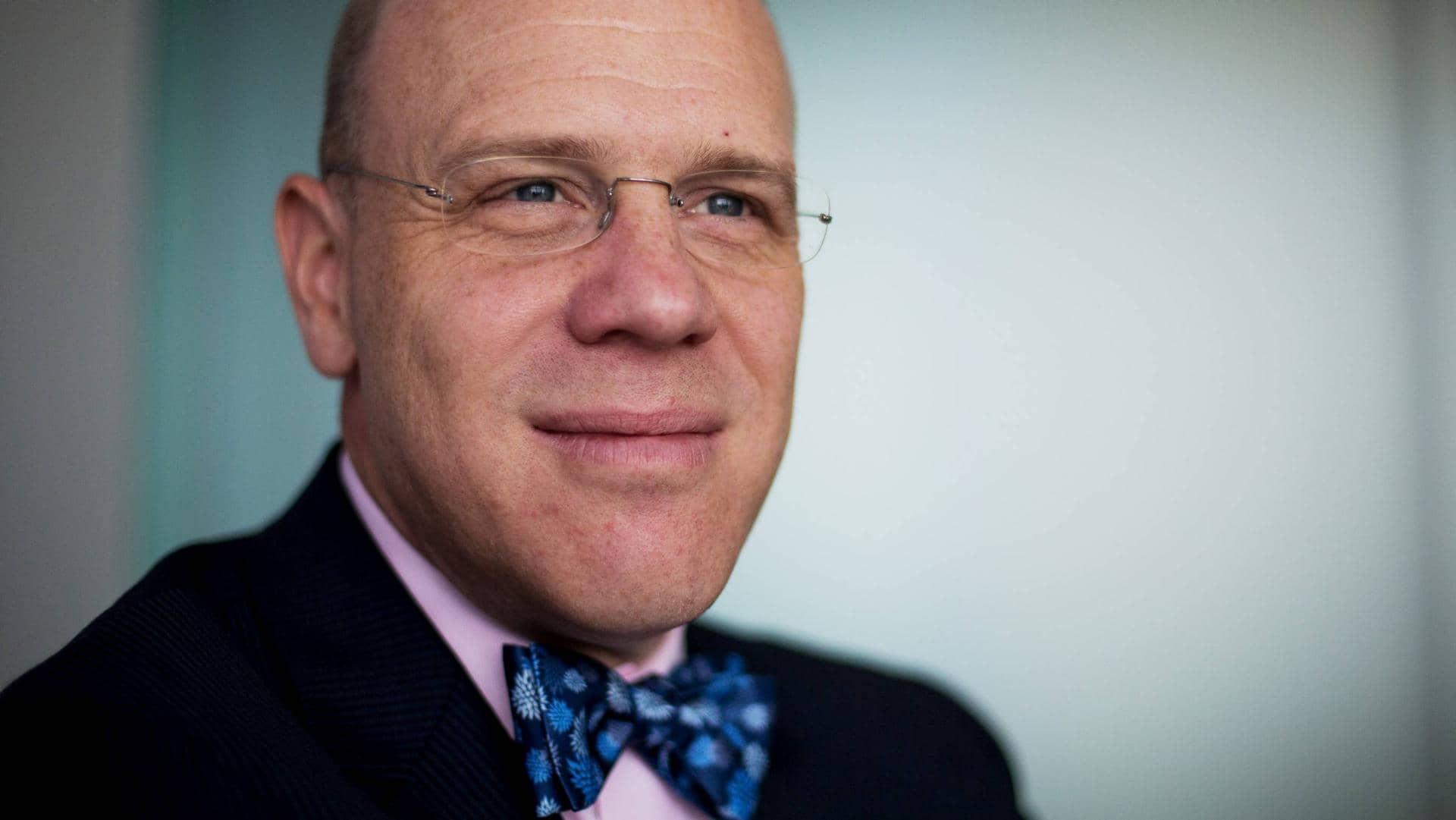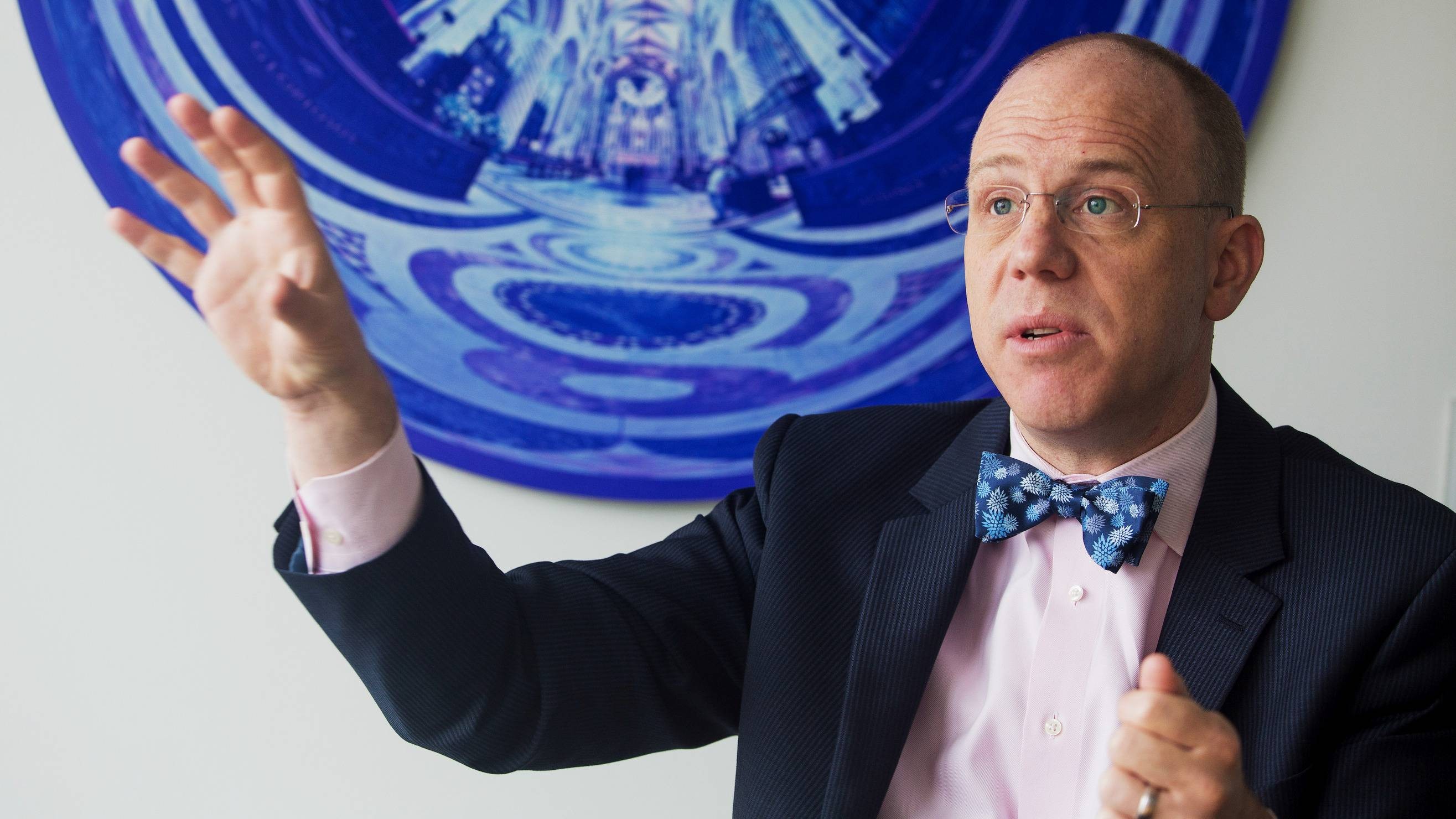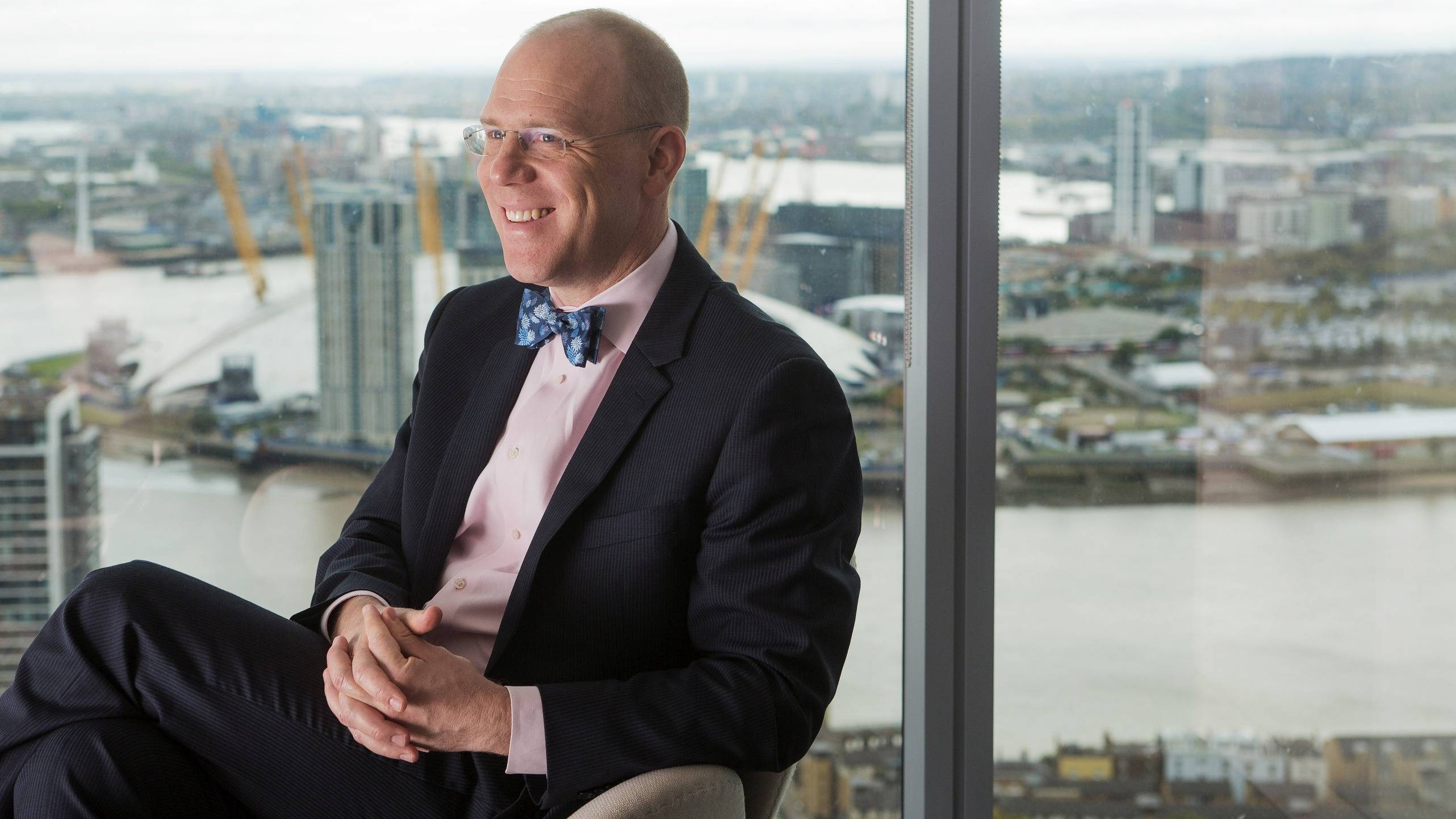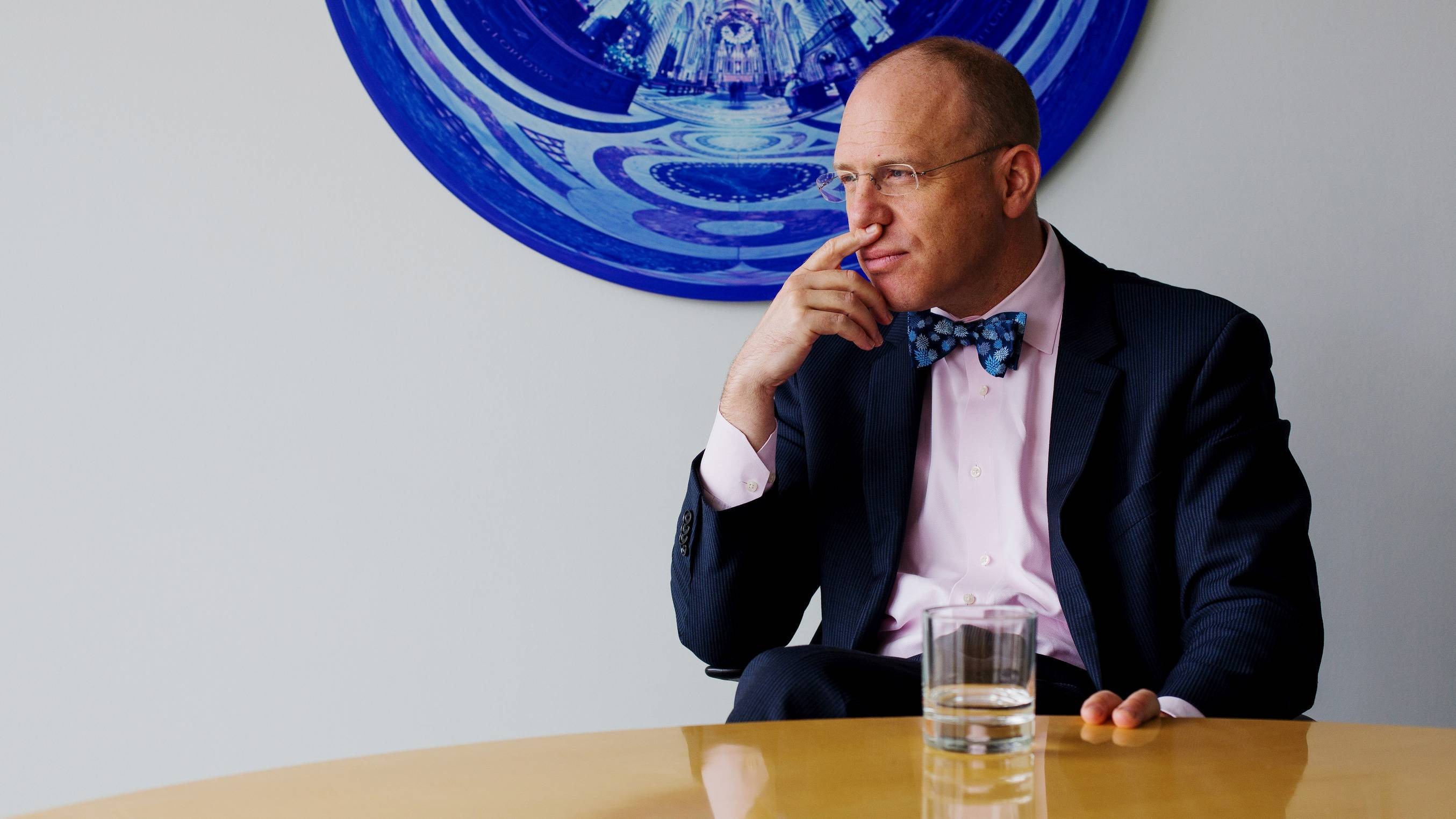
How to predict the future
Marvin Barth is Global Head of FX and EM Macro Strategy Research at Barclays Investment Bank. Barth has a PhD in Economics and began his career at the Federal Reserve in Washington, DC. Before joining Barclays in 2013, he was the Chief Economist for International Affairs at the US Treasury, and has extensive experience in the commercial banking sector as a portfolio manager and strategist. He gives us his insights on information overload, the ‘Politics of Rage’, crypto-currencies – and the price of burgers.
Economical truths
“I start with a classical view of the global economy and how different economic variables and asset allocation decisions impact the demand for foreign exchange – and therefore where exchange values should sit. There’s a fundamental economic analysis, but on top of that there are all sorts of things we never really learned about in economics: how to deal with a secessionist movement in Catalonia? How do you think about Brexit? How do you assess the economic impact of a tsunami in Japan?
“Economics is helpful in understanding those things, but each is a different situation, so we really have to apply our skills and think about how behaviours will change as a result of these events, what the economic impacts are, and then how that’s going to move currencies. So, that’s the fun part of my job – every single day when I wake up, the world is a different place, and I need to work out what’s going on, what I got right or wrong yesterday, how things are going to change now, and where we go from here.”
Information overload
“We are in a world today where people are overwhelmed by information. In the past we had difficulty getting information, now we have way more information than we know what to do with, and we’re constantly bombarded. The difficulty people have now is being able to discern what’s important, and then being able to think about how that will impact their lives, their jobs and investment decisions. And that’s what I do.
Every day when I wake up, the world is a different place, and I need to work out what’s going on – and where we go from here.

“I wrote a study called The Politics of Rage about the collapse of the political centre and the possible market implications of this. I saw all these movements in different countries having an impact, and in noticing the pattern I took the time to dig into it. It’s a wonderful statement about Barclays – and I have worked at other banks where you wouldn’t be given the time to do this – where they say: “This sounds like an interesting thing: look into it.”
I spent several months working intensively on this topic, and probably a year before that doing bits of research. I dug into it, found something that seemed to create a framework to help people think about what was causing, what I termed, ‘The Politics of Rage’ and where it was likely to go, and then analysed what it means for the global economy and assets and foreign exchange.
“We publish something like that not only for our clients, but also for the broader public. I make presentations to various groups to help inform the broader debate on these issues. We’ve done the same thing on globalisation and on inflation – there’s this big mystery as to why inflation has been lower than anyone – from analysts to private economists to central banks – would have thought. We’ve done some of the most cutting-edge research on that at Barclays, and we’ve published it to contribute to the general debate.”
Burger model
“Economics has a vast literature of models that helps us understand a variety of different fundamental factors, and ultimately there are some key concepts that, even when we get these shocks, economies and exchange rates are going to go back to.
A really simple one is ‘purchasing power parity’. So, The Economist magazine’s Big Mac index takes the price of a Big Mac, which has the same ingredients all over the world and should basically cost the same wherever you are. If it’s super-expensive in one country and really cheap in another country, then probably those exchange rates are wrong, and they’re going to adjust.
“It turns out that that theory holds extremely well. We have tonnes of data confirming this – it doesn’t happen immediately, but will correct over three to five years. We may have a shock that leads to temporary dislocations in exchange rates – and that can be difficult – but ultimately we do have some long-term rules that we can fall back on, particularly for our clients who are hedging longer-term risk.”

Changing currency
“On the Big Mac index, those burgers are currently ridiculously cheap in the UK compared to the rest of the world. In those terms, the pound is severely undervalued. Looking at the economy as a whole: this is a country with a highly-skilled workforce, a tremendous amount of capital, the rule of law – all these things make the UK an attractive place to do business in and invest.
At some point, Brexit will work itself out, so in the long run sterling should rise. The problem is that there could be a lot of transition costs here – depending on how ‘light’ Brexit is and how quick the adjustment is. If there’s a ‘no deal’ scenario, the adjustment costs could be so high that sterling could fall further before it ever comes back. Long before politicians and newspapers were thinking about ‘no deal’, we were, because we had to consider all the potential outcomes, however unlikely they seemed.
"A key part of my job as a strategist is to think through and game all those possibilities. Then the probability of all those gamed outcomes changes with events.”
“There’s been a lot of discussion about Bitcoin and Ethereum and whether they are ultimately going to replace other currencies, but the key thing to remember about currencies is that they are issued by sovereigns, and they’re sovereign liabilities. If you were to presuppose that crypto-currencies are going to take over, then you have to assume that governments are going to give up their monopolies on these currencies, and that is incredibly unlikely – particularly in that they can’t control the new currencies, and they don’t know the risks they’re running, or how to track illicit activities.
“While there’s been a lot of excitement over crypto-currencies as investment vehicles, they simply haven’t taken off as actual currencies – in the last two years there’s actually been a falling number of merchants accepting Bitcoin, and it’s not clear that they’re making headway in that form.”
I see my job as focussing on and seeing what issues are the most important to our clients, and thinking them through more deeply than other people have time to.

Client focus
“Ultimately, I see my job as focussing on and seeing what issues are the most important to our clients, and thinking them through more deeply than other people have time to. I can do the hard work for them, cut out all the noise, and give a framework for thinking about it.
“Because currencies are volatile and move, we offer a service to our clients to help them understand how we think those currencies are going to move in the future, and understand what the risks are with exposure to those currencies. My job is to assess those risks, assess the direction of these currencies and advise our clients on them.
“So, we help clients think through their investment and business management decisions as they relate to currency. It could be a UK corporate with operations in Europe, buying from suppliers in euros, or it could be a company dealing in dollars with suppliers and clients in the US.
"A pension fund might be interested in investing in US or Japanese or Brazilian stocks or bonds. In any of those cases they’re going to need to buy or sell those currencies to match those transactions. My job is to come in and think about things in ways that clients previously haven’t to make sure they’re aware of the full range of risks they might face, and make better investment and hedging decisions.”